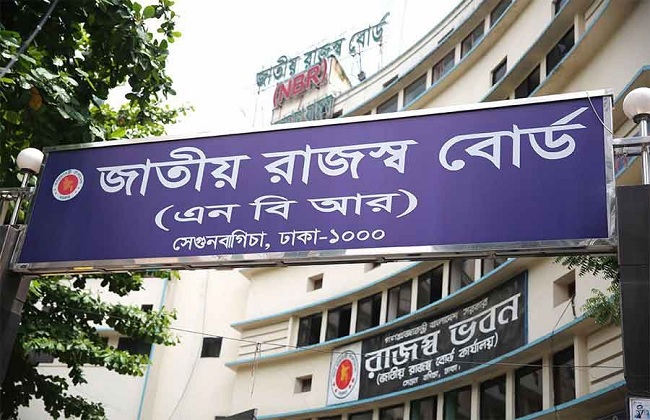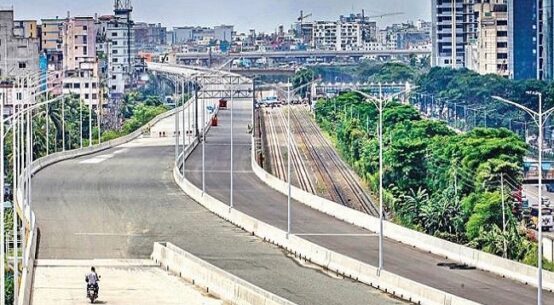
Aiming to significantly boost revenue collection from domestic sources, the National Board of Revenue (NBR) is adopting a three-pronged approach.
These are: digital transformation, expansion of tax net, and enhancing administrative capacity.
The core idea is to make tax payments easy and transparent to improve taxpayer services which in turn will help NBR to collect more revenue, according to an official document.
According to the Medium Term Macroeconomic Policy Statement (2023-24 to 2025-26) of the Finance Division of Finance Ministry, the government has taken some Major reform measures to materialise the move.
The VAT and Supplementary Duty Act 2012 has been implemented in July 2019. With the implementation of the new act, the collection of VAT and supplementary duty is expected to receive a significant boost in the medium term. After the initial hiccup and the shortfall due to the outbreak of COVID-19, revenue collection accelerated in FY22.
The government has enacted the new Customs Act, which replaced the Customs Act 1969. International best practices in customs, including that of the World Customs Organization (WCO), the revised KYOTO Convention and the WTO Trade Facilitation Agreement have been incorporated here.
The law aims to harmonise and simplify customs processes to facilitate the collection of custom duties.
The new Income Tax Act is also expected to create an enabling environment for taxpayers, streamline income tax assessment and collection, and facilitate domestic and foreign investment.
To implement the new VAT law, the NBR undertook the ‘VAT Online Project (VoP)’ which was in operation since 2013 and concluded in June 2021.
Under the VOP, the official document said that the three important automation measures have been completed. First, the Online VAT Registration began in March 2017. Again, the central registration system has been in force since July 2019. The NBR has introduced online return submission in July 2019. The digital filing system has been introduced in the form of online submission of VAT returns.
The NBR has rolled out the electronic payment (e-payment) of customs duties in 2017, income tax in 2012 and VAT in 2020. Income tax can be paid through MFS (mobile financial services) as well.
To facilitate real-time deposit of government money to the national exchequer, the government has launched the Automated Invoice Portal. This Automated Challan (also known as A-Challan) will act as the receipt window of the government. The payment of income tax has already been brought under the A-Challan system on a pilot basis.
The NBR now plans to expand its use for payment of VAT and customs duties. The A-Challan will ensure the timely deposit of money including the prevention of fake return submission and revenue evasion.
Moreover, the discrepancy between the amount of revenue collected by the NBR and the accounts given by the Accounting Offices will be eliminated.
The Medium Term Macroeconomic Policy Statement (2023-24 to 2025-26) said that individual taxpayers can now submit their tax returns online.


